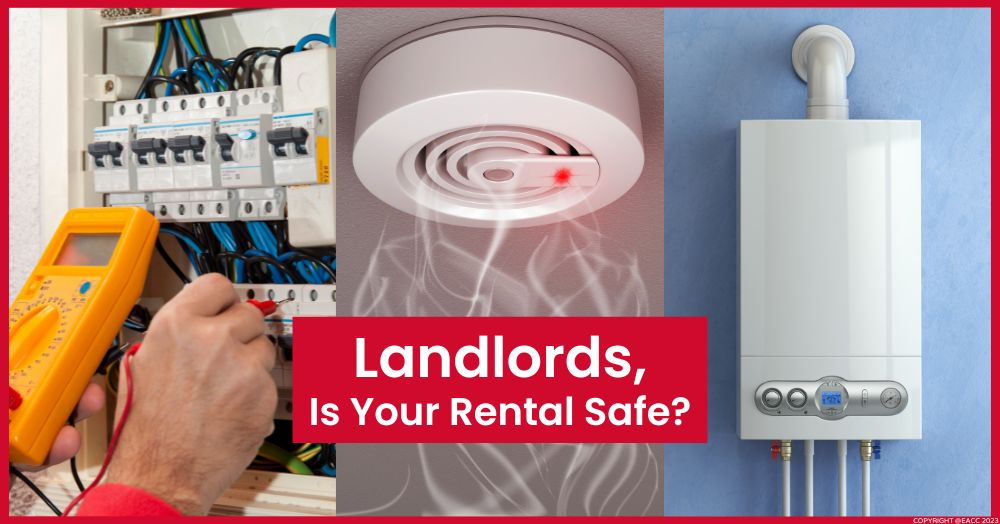Many people are under the assumption that being a landlord is an easy ride. Get your tenants in, collect the monthly rent and that’s it, you’re laughing. Sounds like a dream… Unfortunately, it’s far from the truth, as most experienced landlords and agents will tell you.
Unless you’re lucky enough to have long-term tenants, every time a new lot of renters move in, there are lots of checks to be made, forms to sign, letters to send and on it goes.
One thing that should never be ignored or delayed are your annual safety checks. As a landlord, it is your legal duty to ensure your tenants are living in a safe, hazard-free environment.
In this quick read, we look at some of the responsibilities a landlord should always have at the top of their to-do list. Whilst some are legally required on an annual basis, others are recommended.
- Gas Safety Certificate
Every year, a new Gas Safety Certificate needs to be provided to tenants in either electronic or hard copy form. Officially called a CP12 form, this safety check must be performed by a Gas Safe registered engineer. It’s designed to make sure all gas appliances, pipes and flues within the premises are safe and in good working order.
Make sure you add the date to your diary a few weeks before it’s due to expire so you can get an engineer in before the current certificate expires. Much like an MOT, a gas safety check can be completed two months before the expiry date without shortening the life.
- Electrical Safety Checks
Landlords must ensure that the electrics within a property (such as sockets and lights) are safe and properly installed. It’s always a good idea to get these checked professionally and to use the services of an NICEIC registered electrician.
Every five years, a landlord must legally provide an Electrical Installation Condition Report (EICR), which will confirm if the electrical system is safe. If you provide movable electrical equipment, such as a microwave, kettle or so on, these must be PAT tested (Portable Appliance Test) annually.
- Fire Safety Checks
Legally, every rented property should be fitted with a working smoke alarm and carbon monoxide detector. These should be tested at least once per year, if not more.
If you rent out properties that are furnished, all furniture and upholstery should be fire safe. This is often clearly printed on the label of such items. Tenants should be advised to keep all escape routes clear from obstruction in the event of an emergency – a point to also check during routine landlord inspections. Some rental properties must also have fire extinguishers and other safety equipment to hand – it’s best to check with a local assessor (Fire Risk Assessors (FRA) Register (ife.org.uk)) if your rental meets requirements.
If you’re a landlord and need help managing your property, please contact our team at Hi Residential. We’re happy to help.





